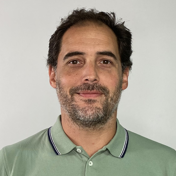I joined CCCU in 2013 after having worked as a postdoctoral researcher at Cornell University (USA) and the Institute of Ecology, National Autonomous University of Mexico (UNAM). I obtained my PhD from the University of York in 2010, my MSc and a BSc (Hons) in Biology from UNAM, and my Postgraduate Certificate in Academic Practice (PGCLT) from CCCU.
As a member of staff of the Section of Natural and Applied Sciences, I am module lead and teach in several undergraduate modules, supervise undergraduate, MSc and PhD students, and I carry out scientific research within the areas of molecular ecology and evolutionary biology, mostly focusing on aspects of biodiversity and conservation. Within the Section, I am also a member of the Ecology Research Group (ERG). Other responsibilities include module and programme administration, external examinations, one-to-one tutorials, doing outreach events, and carrying out knowledge exchange activities.

